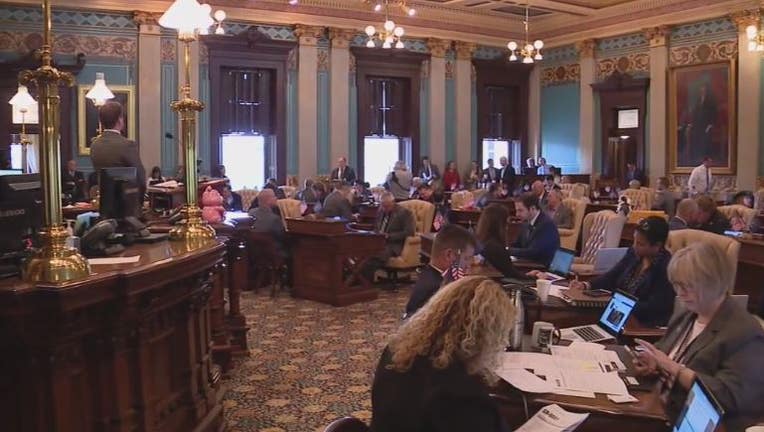Special primary election to fill state House seats requested for Jan. 30, general election in April

FOX 2 (WJBK) - After Michigan lawmakers adjourned a month early due to Democrats losing the majority in the state House, plans are in the works to fill the open seats.
Gov. Gretchen Whitmer called for a special primary election to be held on January 30, 2024, and the general election to be held on April 16, 2024.
The special election was officially requested on Wednesday to fill two vacant seats in the Michigan House of Representatives in a letter sent by Gov. Gretchen Whitmer to Secretary of State Jocelyn Benson.
The vacancy splitting the chamber to a 54-54 deadlock was caused by Democrats Lori Stone being elected as Warren mayor and Kevin Coleman elected as Westland mayor.
Stone represented the 13th House District, while Coleman represented the 25th House District.
"The Michigan Legislature had one of the most productive sessions in Michigan history thanks to Michiganders who elected leaders, like state representatives Coleman and Stone, to get things done on the issues that make a real difference in people’s lives," said Whitmer in a release. "As we look ahead to 2024, these special elections will ensure that Michiganders in the 13th and 25th districts have representation in Lansing working for them as soon as possible.
"I look forward to working with the next representatives from these districts when voters elect them in the new year."
Michigan Democrats had worked at a breakneck pace at the start of the year after regaining full control of the Legislature and governor's office for the first time since 1983.
Related: Michigan Democrats lose majority in House after Westland, Warren mayoral races
They passed a number of priorities, such as a gun safety package and increased protections for LGBTQ+ people and abortion rights. They also repealed a union-restricting law known as "right to work."
Party unity has wavered in recent months and Democrats were unable to pass several key pieces of legislation before the end of the year that would have implemented paid family and medical leave, lowered prescription drug costs and increased auto insurance reimbursement rates.
Michigan is one of the only states where the Legislature and governor’s office are not open to records requests, shielding lawmakers from "sunshine" laws that give the public insight into what they do. Democrats had vowed to change the laws but have yet to do so.
The Associated Press contributed to this report.

Mayoral wins by Reps Coleman, Stone cause tie in State House
Republicans were watching Kevin Coleman's race and the race involving Democrat State Representative Laurie Stone, who is now mayor elect in Warren.

